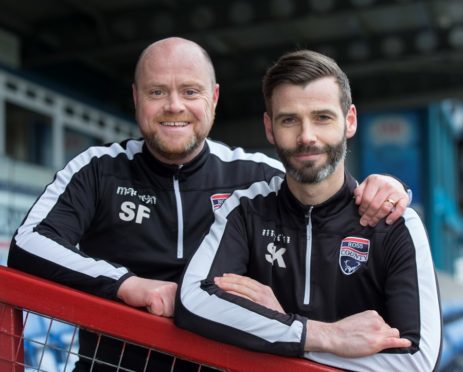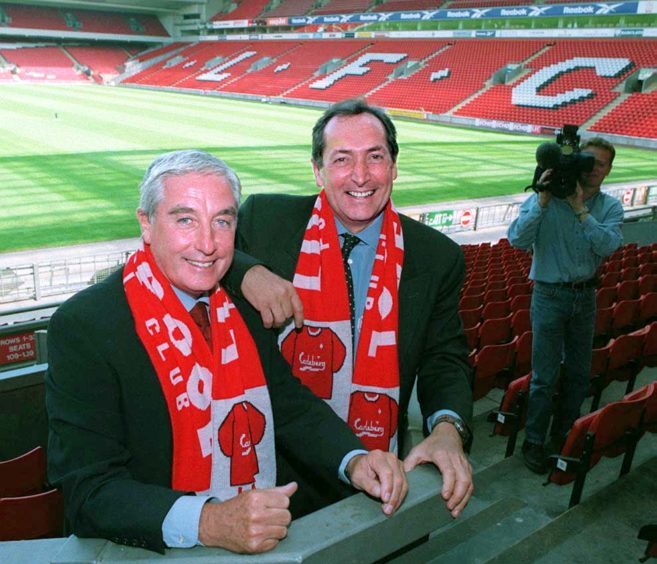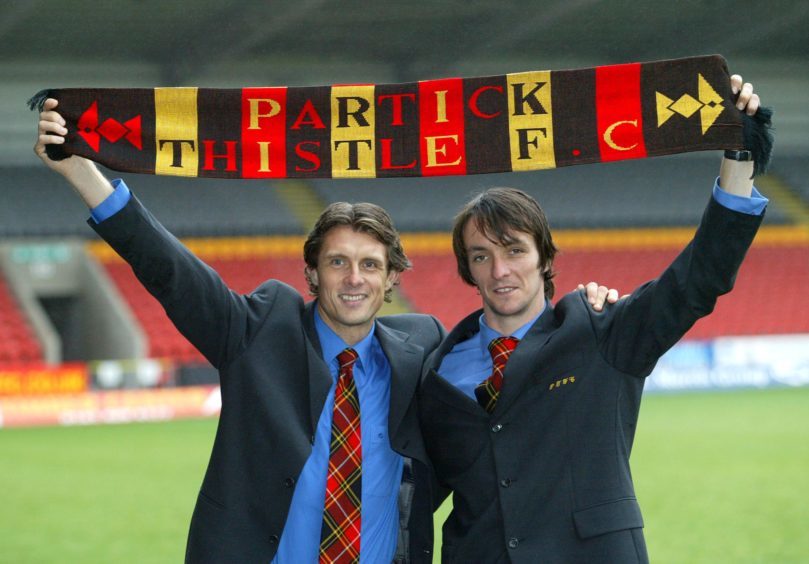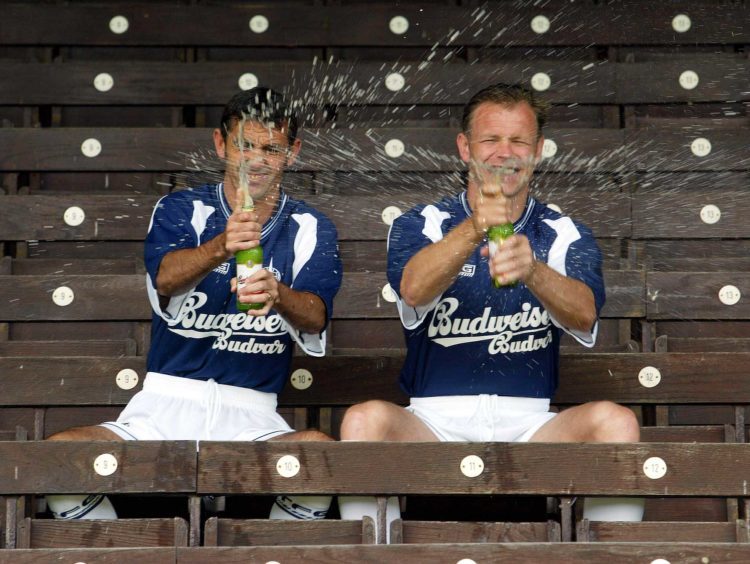Ross County’s decision to appoint Stuart Kettlewell and Steven Ferguson as co-managers has been warmly welcomed by supporters and praised as a bold move across the country.
The pair are held in high regard by Staggies fans, not just for their respective playing careers at the club, but for how they have managed the coaching side of things over the last couple of years.
Kettlewell led the development league side to an unexpected title last season while Ferguson is highly thought of for the work he has done as academy director.
Under a new structure, they will have now manage the entire football operation from the youth sides to the first team. It’s undoubtedly a bold move by chairman Roy MacGregor and there is no doubt that the atmosphere around the club has improved since Kettlewell and Ferguson took the reins.
However, the concept of joint managers is rarely one that turns out to be a success in football.
Will Kettlewell and Ferguson fare better than these duos did?
Gerard Houllier and Roy Evans, Liverpool, 1998
The first pair that come to mind when talking about co-managers are these two. It was strange that such a high-profile club would go for this, especially as Roy Evans had been in sole charge for four years.
It was seen as a bit of a slap in the face to Evans, who eventually quit three months after Houllier joined. The Reds board decided to keep faith in Houllier and it proved to be the right move, as he led them to the FA Cup, two League Cups, the UEFA Cup and the UEFA Super Cup.
Evans had short spells with Fulham and Swindon but hasn’t managed a team since 2001.
Colin Todd and Roy McFarland, Bolton, 1995-1996
Legends in their own right for an unexpected title triumph at Derby County under Brian Clough, Todd and McFarland’s spell as co-managers for the Trotters was altogether different.
At Derby, they personified a sense of calm confidence but things went downhill at Bolton very quickly. Bruce Rioch had taken them up to the Premier League before leaving for Arsenal, leaving his assistant Todd to take the reins.
He opted to share the role with McFarland and they embarked on a run which saw them gain just 10 points in 22 matches. McFarland was sacked while Todd remained as the club eventually went down.
Todd got them promoted back to the top flight the following season but they were relegated again the next season.
McFarland had spells as manager of Cambridge, Torquay, Chesterfield and Burton Albion and is now on Derby’s board of directors.
The 27-times capped Todd has bounced around jobs across England and Denmark and is currently unemployed.
Derek Whyte and Gerry Britton, Partick Thistle, 2003-2005
Thistle were already in freefall after a disastrous spell with John Lambie’s long-time assistant Gerry Collins in charge when these two took the reins.
The damage had already been done and you can’t be too harsh on them for the Jags’ meek relegation in 2004.
However, the club started off the next season is equally disastrous fashion and after hovering around the relegation zone they were sacked in January 2005.
Dick Campbell came in to steady the ship but failed, and the club suffered a second successive relegation.
Britton is still involved with Thistle on the youth side of things, while Whyte now lives in Dubai.
John Hughes and Owen Coyle, Falkirk, 2003
At last, a success story! Not only that but the omens are good, with both managers having recently been in charge of the Highlands’ two clubs.
Coyle may have proved a dud with County this season but alongside Hughes, their Falkirk team marched to the First Division title in May 2003.
Ian McCall had assembled a strong squad before he was poached by Dundee United but there was still work to be done when they took the reins in January.
The club were sadly denied promotion because Brockville was deemed unsafe as a top division ground and Coyle followed McCall to United, allowing Hughes to embark on a successful managerial career solo.
He won the Bairns promotion to the top flight and kept them there for five years before leaving for Hibs, and later won the Scottish Cup with Caley Thistle.
Coyle’s managerial career got off to a flyer with St Johnstone and Burnley but it has since gone off the rails after lean spells at Bolton, Wigan, Blackburn, Houston Dynamo and County.



